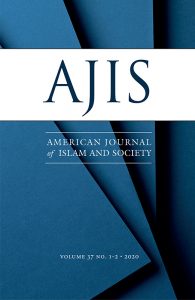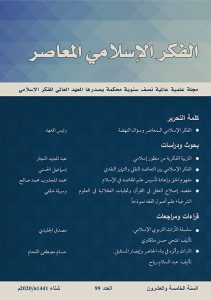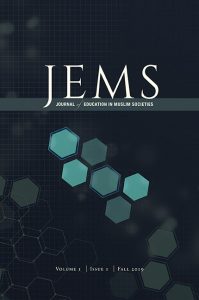The American Journal of Islam and Society – AJIS (previously published as American Journal of Islamic Social Sciences between 1984-2019) is a double-blind peer-reviewed and interdisciplinary journal published by the International Institute of Islamic Thought (IIIT). The journal showcases a wide variety of scholarly research on all facets of Islam and the Muslim world: anthropology, economics, history, philosophy and metaphysics, politics, psychology, and law. The journal welcomes all scholarship that pertains to the myriad ways in which Islam and human societies interact.
American Journal of Islam and Society (AJIS)
Al-Fikr al-Islāmī al-Muʿāṣir
Contemporary Islamic Thought Journal – CITJ (previously published as Islamiyat al-ma’rifah between 1995-2019) is a double-blind peer-reviewed and interdisciplinary journal published in Arabic twice a year by the International Institute of Islamic Thought. It offers an open platform for the exchange of knowledge and ideas, with the aim to: (1) Facilitate methodological reform in Muslim thought by introducing and developing the concept and practice of ijtihad (creative intellectual reasoning on the basis of Islam’s principle sources) as a decision-making tool for the betterment of life in general; (2) Promote awareness, research, and education in Muslim societies; and (3) Formulate critical academic methodologies, tools, and policies which respond to the ongoing breakthroughs in human knowledge as a whole and which support and drive the revision and investment of Islamic knowledge.
Journal on Education in Muslim Societies (JEMS)
The Journal of Education in Muslim Societies (JEMS) is a semiannual, double-blind peer reviewed journal published in partnership with the International Institute of Islamic Thought and Indiana University Press. JEMS encourages work on a wide range of topics pertinent to the education sector including but not limited to pedagogies, teacher practices, leadership, and policy as it relates to the conditions and status of education in Muslim societies and communities. The guiding premise of the Journal is that education serves more than just the acquisition of knowledge and skills but the enhancement of the holistic aspects of individuals and societies. JEMS seeks manuscripts in subject areas such as comparative education, youth and youth development, curriculum reform, early childhood education, higher education, as well as others. The journal has no disciplinary or methodological bias.



